Luke, Traffic Officer, London
This post marks the end of a nearly two-year personal project about people and their work, and about the evolution of trades and professions.
Life’s Work extends Irving Penn’s Small Trades, 1950-1951. Small Trades was rooted in work by Eugène Atget (1857 – 1927). Each examined individuals based on profession. In 70 year jumps, each wrestled with photography, culture, & technology. Time and culture affect the link between identity & vocation.
Atget photographed in Paris. Penn took on three cities: Paris, London, and New York. He photographed people with the tools of their trade, using natural light and one backdrop, in his studio. Like Atget and Penn, I found subjects in Paris. Like Penn, I also photographed subjects in London. Unlike Penn, I wanted a more rural representation of the United States, so I photographed people in my own studio in the small town of Plymouth, New Hampshire.
Rural trades can look different from urban ones; consider the tree-cutter or the veterinarian.
I have been adapting Penn’s methods for today. Views on identity and jobs evolve. This project is a third chapter in this cycle of work, inviting a fourth someday.
Trades evolve; I photographed a female police officer and a male florist. Tools change. The role of portraiture evolves within society. Photography as a medium bloomed from Atget to Penn. It has since overtaken all media, intrinsic in our lives.
My technique is fueled by human expression. For Life’s Work, I worked in a studio with one backdrop, like Penn. With no labor environment, there is equality; no distractions. The focus is on the person. I prefer black & white: shadows and highlights emphasize expression.
Initially, I used Penn’s methods. Sometimes I got subjects from the street. Later, I used the 21st Century equivalent: social media. I shouted out online for subjects.
Henry David Thoreau said “Could a greater miracle take place than for us to look through each other’s eyes for an instant?” People take pride in their work. Grins or frowns are easy. Other expressions invite us to focus, to give empathy, and come together.
I often seek to render clients as kind and attractive. Penn felt no such duty, nor did I for this project. I pursued micro-expression. I asked, “How do you feel about your work?” This often revealed pride, even nobility. I diverged from Penn in my approach to the subject. I sought to photograph not only the person, their tools and the uniform of their labor; but their dignity as well.
The next stage of the project is to prepare the portraits for exhibit. The first will be a solo exhibit at the Galletly Gallery at New Hampton School here in New Hampshire in January 2020.
Luke has been a police officer for 23 years. In 1998, he learned to ride a motorcycle and loved it. For the past seven years, he has specialized as a Traffic Officer, combining his love of motorcycle riding with his work. Part of his job is also Family Liaison Officer, where he works with families of people who have been killed in traffic accidents. Luke is the link between them and the investigation team.
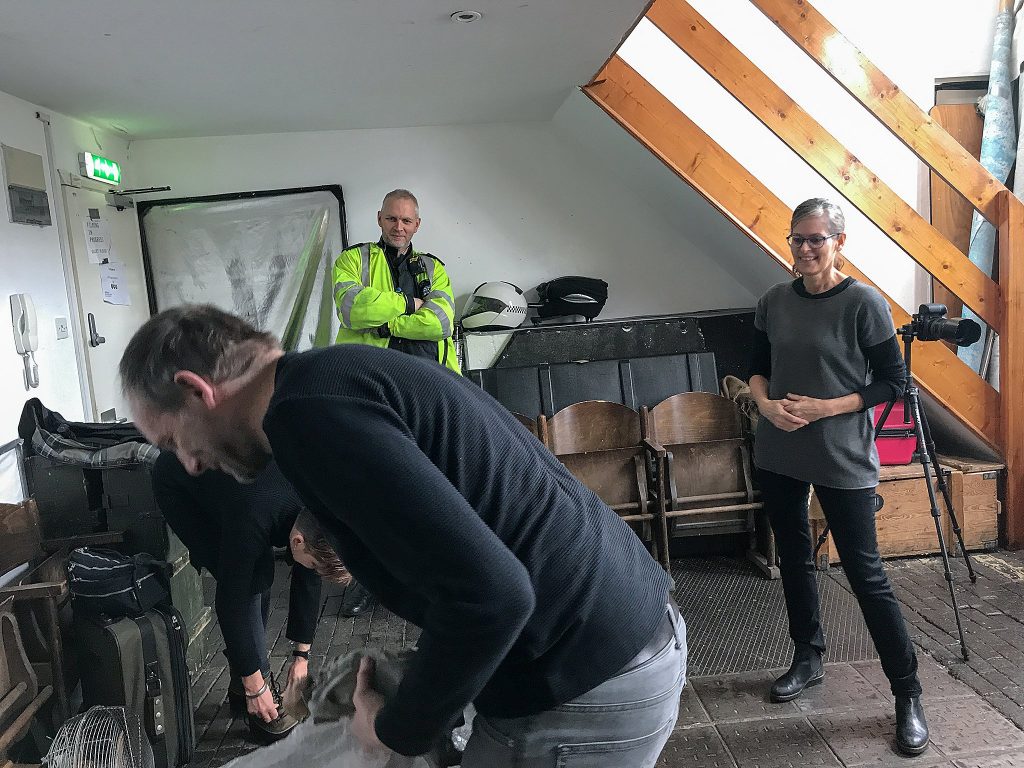
Luke, Traffic Officer, London
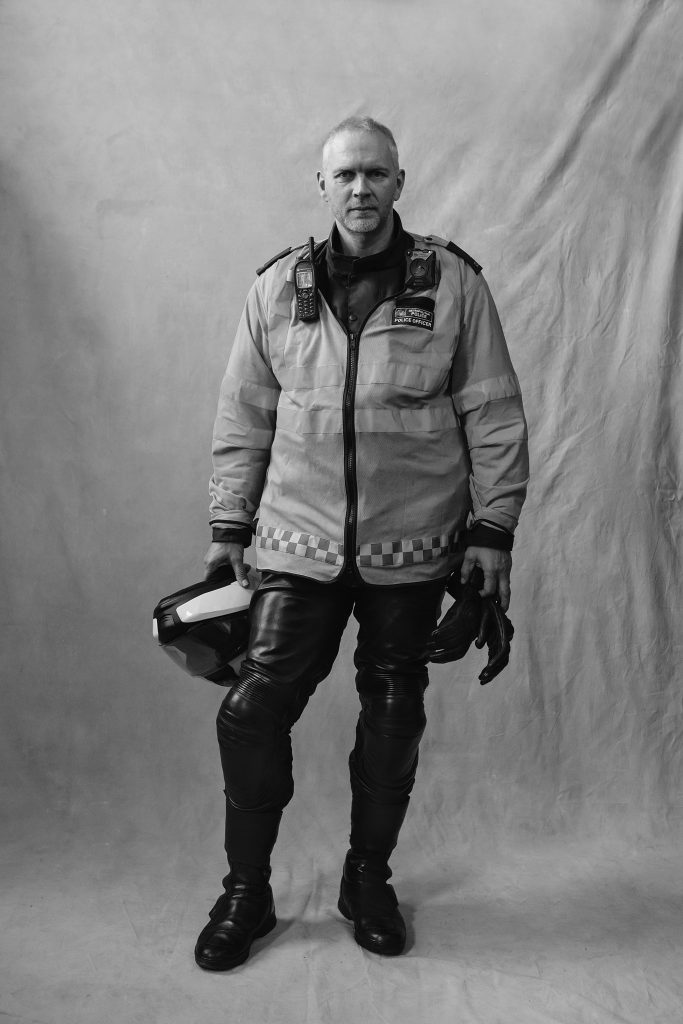
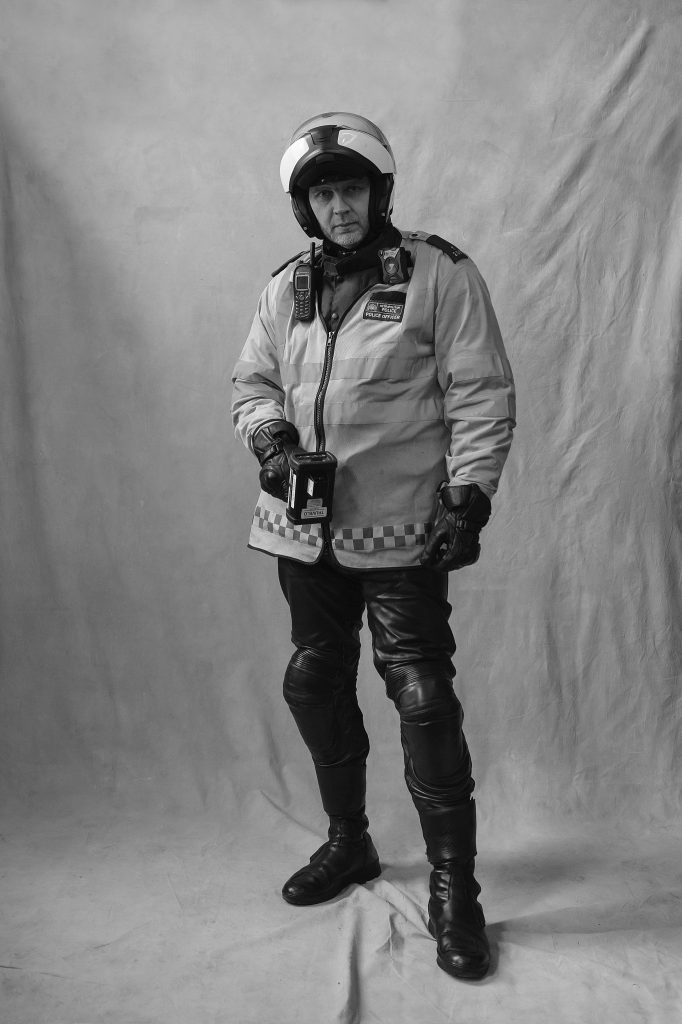
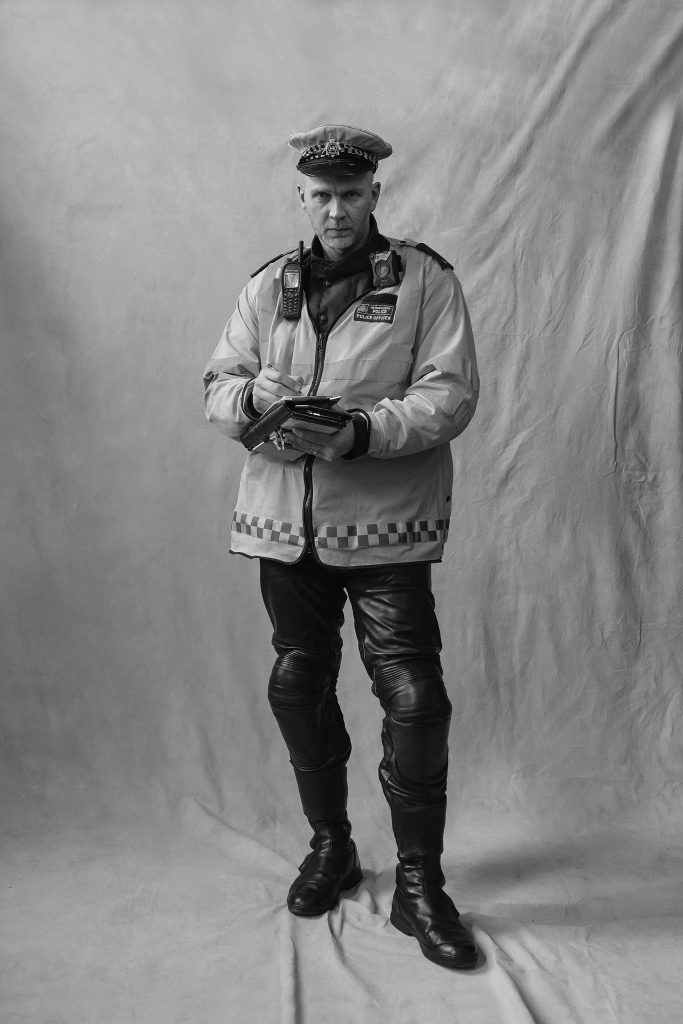
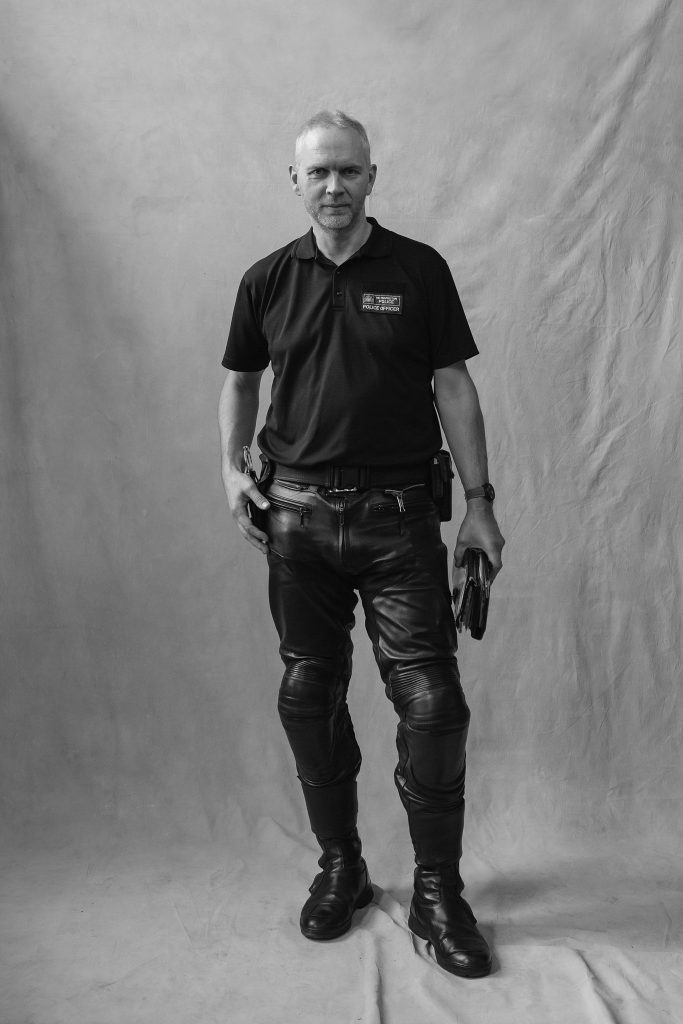
You can see Parts I-XXXV HERE
